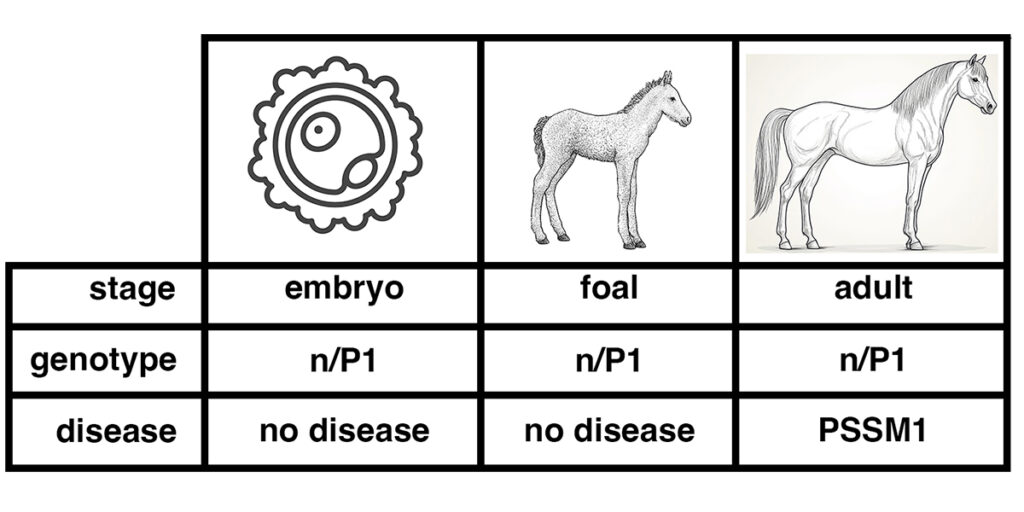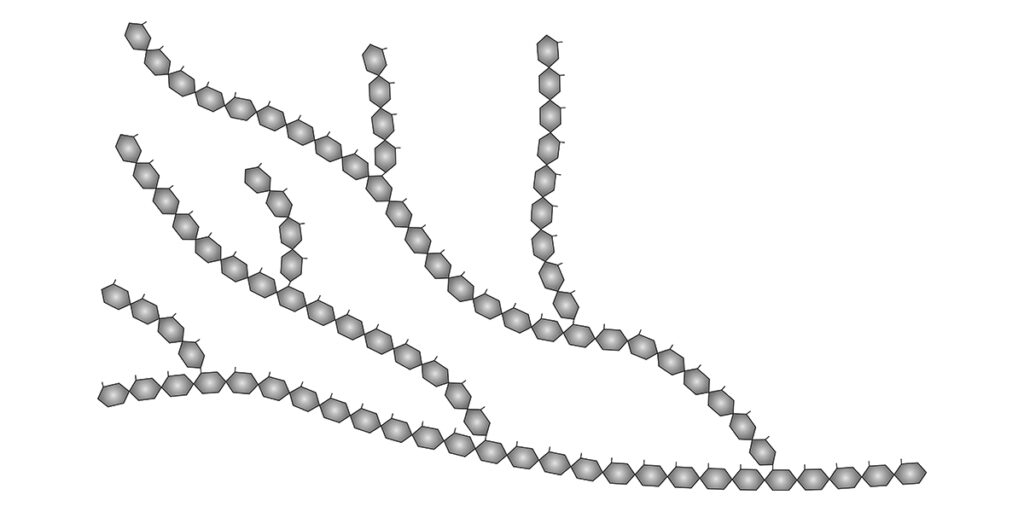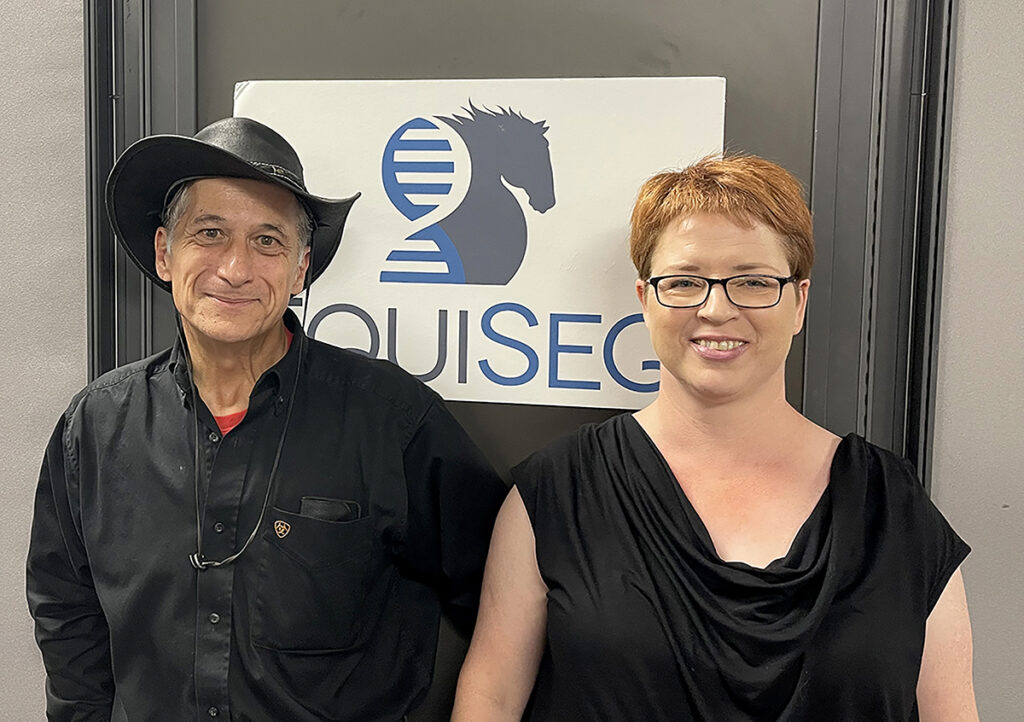Posts by Paul Szauter, PhD, Chief Scientific Officer, EquiSeq
P2 Allele of MYOT
Introduction This blog post explores the P2 allele (S232P) of the equine MYOT gene, which encodes myotilin. Portions of this blog post serve as additional sources of information to supplement the MYOT Gene Page. We present data to support the hypothesis that the P2 allele of MYOT (S232P) is damaging. The substitution of proline (heterocyclic)…
Read MoreTwenty European countries issue patent on EquiSeq DNA tests
ALBUQUERQUE, NEW MEXICO EquiSeq announced today that a group of twenty countries in Europe have issued a patent on EquiSeq’s DNA test for three genetic variants that predispose to muscle disease. The tests are part of EquiSeq’s current DNA panel. Test results allow horse owners to better manage affected horses, and can be used to…
Read MoreJeremy Edwards speaks on intellectual property
Jeremy Edwards, Chair of Department of Chemistry and Chemical Biology at the University of New Mexico, is one of UNM’s most prolific inventors. Dr. Edwards is part of the EquiSeq science team and is an inventor on two of EquiSeq’s patents. In this interview, Dr. Edwards talks about the importance of protecting intellectual property.
Read MoreSouth Africa issues patent on EquiSeq DNA tests
ALBUQUERQUE, NEW MEXICO EquiSeq announced today that South Africa has issued a patent on EquiSeq’s DNA tests for three genetic variants in horses that predispose to muscle disease. The tests are part of EquiSeq’s current DNA panel. Test results allow horse owners to better manage affected horses, and can be used to improve a breeding…
Read MoreNew Zealand issues patent on EquiSeq DNA tests
ALBUQUERQUE, NEW MEXICO EquiSeq announced today that New Zealand has issued a patent on EquiSeq’s DNA tests for three genetic variants in horses that predispose to muscle disease. The tests are part of EquiSeq’s current DNA panel. Test results allow horse owners to better manage affected horses, and can be used to improve a breeding…
Read MoreCanada issues patent on EquiSeq DNA tests
ALBUQUERQUE, NEW MEXICO EquiSeq announced today that Canada has issued a patent on EquiSeq’s DNA tests for three genetic variants in horses that predispose to muscle disease. The tests are part of EquiSeq’s current DNA panel. Test results allow horse owners to better manage affected horses, and can be used to improve a breeding program…
Read MoreGenes First!
EquiSeq has released a major revision to the software that powers our website and database. We now present genetic test results starting with the affected gene. Here is an example of the appearance of the new horse profile pages. Figure 1. A horse profile page returning results from EquiSeq. This horse has tested positive for the…
Read MoreStudy of horse genomes explores genetic burden
A team of researchers at the University of Minnesota and the University of California, Davis, have published a landmark study of the predicted genetic burden in horses, based on the analysis of whole genome sequence data from 605 horses (1). They conclude that the genetic load in horses is 1.4 – 2.6 times that of the human population. The authors discuss the unique advantages of the study of horse to understand human phenotypes, especially those associated with athletic performance.
Horse owners have asked us to explain this paper, as it mentions the genetic variants that are in EquiSeq’s panel of DNA tests. Here we review the methods and major findings of this paper. We include background information typically absent from the primary literature in order to make the paper more accessible to non-specialists.
Read MoreWhat is PSSM?
Polysaccharide Storage Myopathy (PSSM) is a form of equine exercise intolerance characterized by episodes of tying up. Horses with this condition have a particular set of clinical signs, including displays of pain, refusal to move forward, trouble standing for the farrier, and standing “parked out” as if to urinate. All of these are signs of…
Read MoreGeneratio Scientist Visits EquiSeq
Dr. Melissa Cox, a scientist at Generatio, visited with Chief Scientific Officer Dr. Paul Szauter at EquiSeq’s office in Albuquerque. Dr. Cox was visiting for a friend’s wedding, and made time for a two-hour discussion of scientific work at Generatio GmbH. Dr. Cox reviewed the results of a survey of horse owners exploring symptoms in…
Read More


